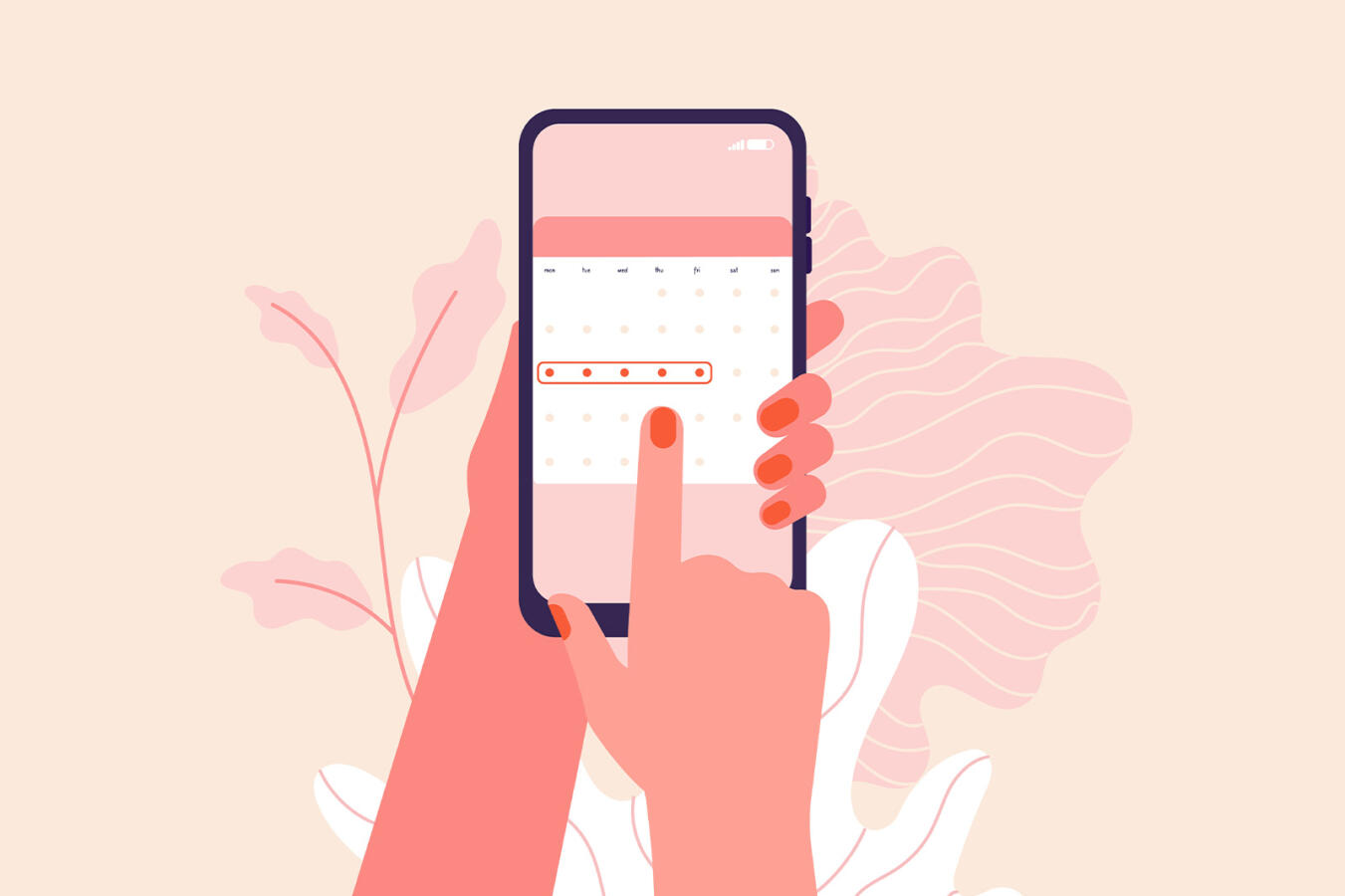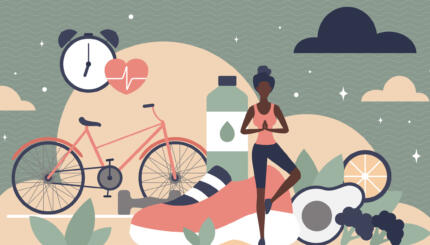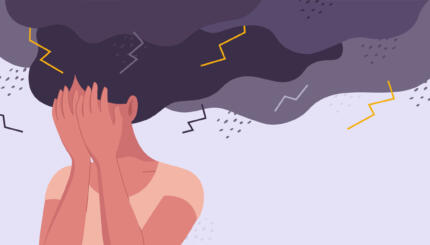The menstrual cycle can affect many people, both mentally and physically. Many people believe that these effects only occur while they are experiencing bleeding, but did you know that your cycle is affecting you every day, even when you’re not menstruating? A typical menstrual cycle can last between 21 and 35 days, but everyone’s cycle is different and can change as they age. Different stages of every cycle can affect the mind and body differently. However, if you know how your mood and body will feel beforehand, it allows you to prepare yourself for what each day may look like.
Phase 1: The Menstrual Phase
Phase 1 is the most well-known in the menstrual cycle and typically lasts for 1-7 days. This phase is mainly signified by bleeding through the vagina. Other physical symptoms you might experience during this phase are cramps, bloating, headaches, and lower back pain. Taking a warm bath or applying a heating pad to your cramps or lower back can relieve this pain. To help with bloating and headaches, I’ve always preferred drinking lemon water as my favorite at-home remedy. During phase 1, it’s also common to experience emotional symptoms such as mood swings and tiredness. Physical activity is a great way to improve mood swings and if you’re feeling tired, take a nap! Your body will appreciate you for it.
Phase 2: The Follicular Phase
Once phase 1 is complete, your body enters phase 2 of the menstrual cycle. This phase typically lasts 8 days, occurring through days 6-14 of the cycle. The biological cause of phase 2 is that your ovaries are forming a new egg. To form this egg, your hormones need to shift. Many people feel happier and more energized during this phase compared to the others. It is recommended to take advantage of the confidence and energy you experience during this phase by doing hiking, light runs, or yoga.
Phase 3: The Ovulation Phase
Phase 3 is the shortest and it typically only lasts one day of the menstrual cycle. During this phase, the egg that was formed in phase 2 is released from the ovaries and it travels down the fallopian tubes. During ovulation, it’s common to experience thicker discharge, cramps, and a slight rise in body temperature. To relieve these symptoms, you can take a hot bath or take an over-the-counter pain medication. You are also more likely to experience irritability and anger during this phase. You should make sure to give yourself extra time to relax and practice self-care while you are ovulating.
Phase 4: The Luteal Phase
Phase 4 is the final phase of the menstrual cycle and it usually lasts 13 days. Some common physical symptoms you might experience during this phase are bloating, breast tenderness, and headaches. Similar to phase 1, drinking lemon water can help relieve bloating and headaches. To relieve soreness of breasts, try to avoid caffeine and eat whole grains and vegetables. Some mental symptoms you might experience during phase 4 are mood swings, food cravings, and trouble sleeping. Some light exercise can be beneficial in relieving these symptoms.
If pregnancy doesn’t occur, your cycle will repeat by the body destroying the egg formed during this cycle to prepare for a new egg. This is signified by bleeding through the vagina in phase 1.
I hope that this information will be useful for you to understand your body and your mind more as you or someone around you goes through each of these phases. If any of these symptoms become severe or if you are concerned about your cycle, you can speak to your doctor.






